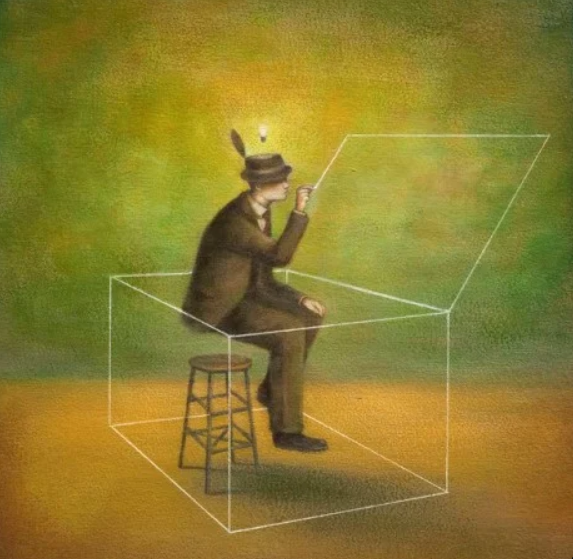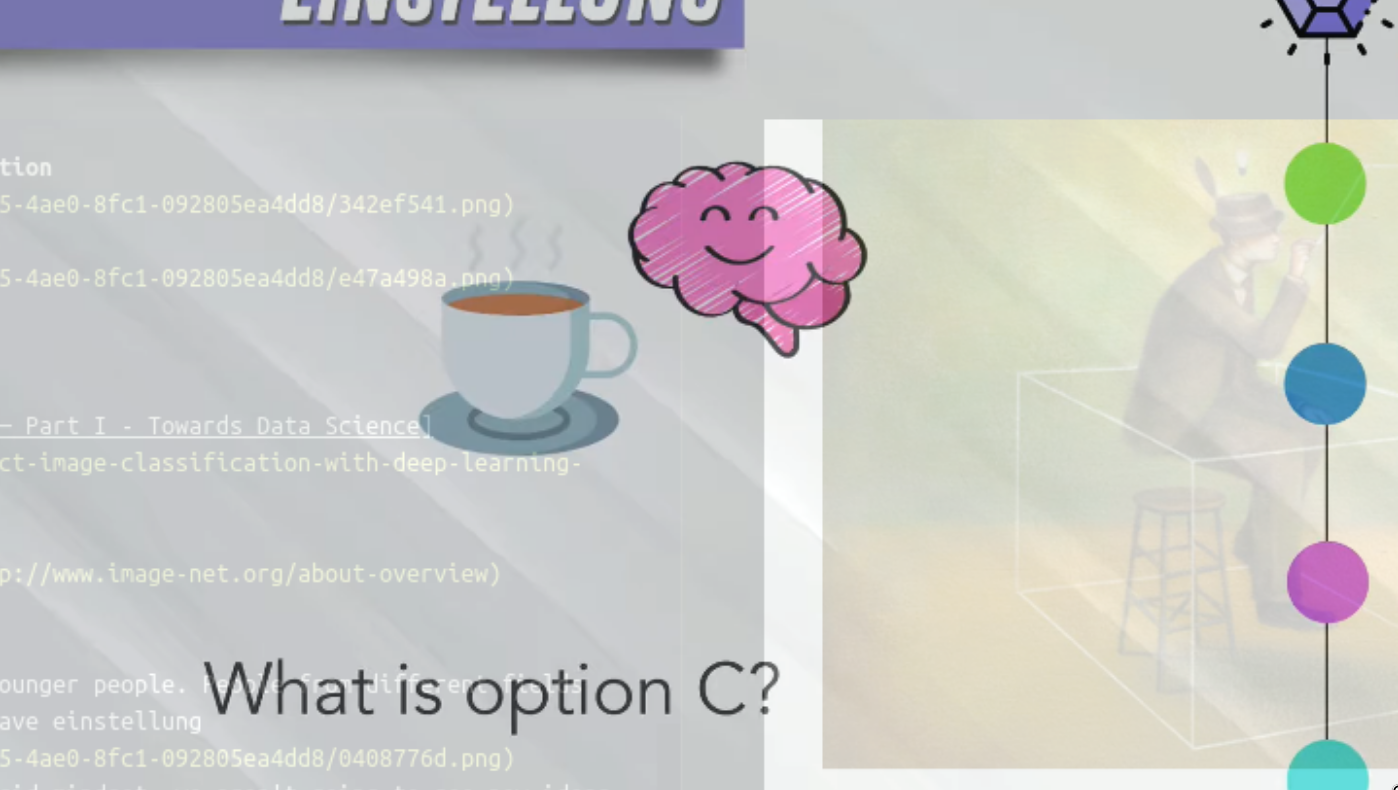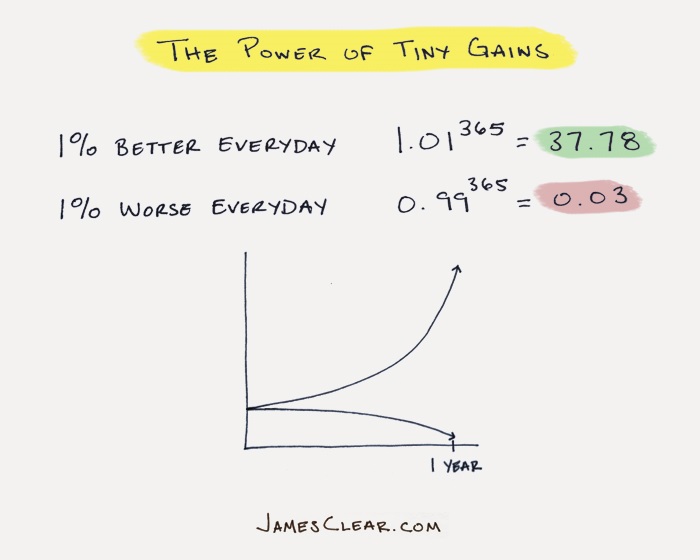Learning how to learn
Learn to learn: Feedback
- In the beginning we need positive feedback so we have motivation and love what we do
- But in the long term. You need negative feedback so it can help you improve. Negative feedback is very important
- You need to learn from other's experienced mistake so that you can accelerate your learning.
Procrastination
- Procrastination is an issue with managing our emotion, not our time. The task we are actually putting off because it make us feel bad
Ative learning vs passive learning
- You learn best by active engagement instead of just passively listening to like podcast, watching to youtube video. You should relate what you learn to your life. How you can implement that in your life. Watching other people demonstrate things without actally do it
- Active learning is being involved in practicing. Taking down notes. Try to solve problem yourself
- Passive is easy, it make us feel good, feel productive
- You can listen to the podcast 2 time faster and pretend you learn something. Active learning is practicing what you learn
- Praticing and recalling is the best way to learn instead of reread or relearn the material
Feynman technique
When i am trying to learn a new concept. I have hard time learning it. I try to explain the concept to myself in the most simple way with words that an other person not in my field can understand whay I say.
The science of motivation
- Intrinsic motivation: Come from the inside. We do something because of we are, because of what we believe
- External motivation: Money
Find purpose, what is our purpose how does it help benefit myself and other around you what is your destiny
- Add reward for hard things that we don’t want to do
- Hhen you follow a passion and you get payed for it. It isn’t your passion anymore
Create a roadmap
- Create a roadmap for what you are going to learn to achieve your goal
- Before choosing what material you are going to study, reasearch the opinion of other self learners , other master, teacher
- Learn about the industry
- Its about selecting material and figure out what is the good quality content that i should study
Goals
- Setting big goals is scary
- Making small goals, make a step each day that in the long term is going to compound
It pays not to be busy
- Being busy is not a good thing, it shows that you have a lack of time management
- More is not always better
- Have leisure time, time to break
Chunking
- When we find a subject so hard, we break it down into smaller little chunk and then combine that knowledge to solve that big problem. Devide and quonquer
- Let's say you want to learn spanish. It's so hard to learn spanish at one. So you break spanish down into chunk.
- Start with 100 common words. Google 100 hunrded most commonly used spanish world
- Then learn the 10 commnon verbs and actions
- If you want to learn how a car works. You are not gonna learn how a car work right away. You want to break down how each part of the car work and then combine
How to solve problems
- When we are in the focus mode of thinking
- In diffuse mode.
Deliberate practice
- Thing are so good at first. You see your self progressing more and more quickly, but eventually we always hit what we call the limit. Where we start to plateu, because we don't get that immediate we start to get a little frustration. This is where deliberate practice come in
- Being uncomfortable. Asking yourself, how can i made what i do today a little bit harder that what i do yesterday seek inmmediate feedback write it down, this is the progress that i made
Effective practice
- Stay consistent, intensely focused, and push yourself to the edge of your current capacity.
- Focus on the task at hand, minimize potential distractions by turning off the computer or TV
- Start off slow, then pick up speed.
- Devide time used for effective practice into multiple daily practice section of limited duration
- Reinforce what you learning by imagine yourself doing it
Energy saving with habits
- If you write down what you need to accomplish the next day, it takes away from our brain having to work on writing down that goal the next day
Have and endpoint
- when it comes to performing unpleasant task, your brain needs to know that there is an endpoint
- when you plan on working on something, tell yourself that i'm going to be done by the end of this point
- No matter what, in 5:PM. I will stop working. I'm going to give my brain a rest
- We needs to take break
- If help your brain stay focus
- Now when you are not productive anymore
Spaced repetition

Einstellung effect
What you already know can hurt you
The most breakthrough are made by younger people. People from different fields that comes in is because they don’t have einstellung

- We tend to choose the quickest way to work. The brain attempts to work efficently by reffereing to past solution without giving the current problem much thought. It's a stuck mindset
- Means rigid mindset. If we had a rigid mindset, we aren't going to see new ideas.
- Likes a mind way of creating a road block where your intuition becomes wrong
- Because you consider yourself no longer a beginner, you stop taking advice , opinions feedback from other people. From other master, colleges , even people are not as smart as you
- How to solve:
- willingness to take multiple perspective, get different oppinions
- willing to be told that you are wrong. That's true intelligent
- Think that i was wrong. I'm going to learn something new or take advice from other people

Solution to Einstellung:
- Distraction: forget about the project and think about or do other things. Taking your mind off the task at hand for a while effectively activates the cerebral cortex and gets you out of the working memory to explore new ideas and connections.
- Interleaving: switches between ongoing tasks to improve memory, retention, and learning
In a production environment sometimes good enough really is good enough. It may not be worth the extra effort to get the best solution
It’s not how much you learn that matters, it’s how much you remeber
- Review in an hour. Then in day
- Best time to review information are right before you go to sleep and right when you wake up How To Retain 90% Of Everything You Learn

All of us waste 90% of our time, resouce, learning time.
- You're just doing everything you can to prevent learning. And here's why.
- 90% of what they learn when they teach someone else/use immediately.
- 75% of what they learn when they practice what they learned.
- 50% of what they learn when engaged in a group discussion.
- 30% of what they learn when they see a demonstration.
- 20% of what they learn from audio-visual.
- 10% of what they learn when they've learned from reading.
- 5% of what they learn when they've learned from lecture.
So why do you retain 90% when you teach someone else or when you implement it immediately?
- Because when you are implementing or teach. You instantly make mistakes. So as soon as you run into difficulty and start to make mistakes. You have to learn how to correct mistake
- So how do you avoid losing 90% of what you've learned?
- write it down in a mindmap
The 50/50 rule
- A better way to learn, process, retain and remember information is to learn half the time, and share half the time.
- Learn for 50% of the time and explain what you learn for 50% of the time.
- Instead of completing a book. Aim to read 50 percent and try recalling, sharing, writing down key ideas before proceeding
- Force yourself to recall by writing your own summaries/bullet point
- Write your own summaries instead of copy
The power of 1 Percent
A journey of a thousand miles begin with a single step
- 1% better everyday 1.01³⁶⁵ = 37.78
- 1% worse everyday 0.99³⁶⁵ = 0.03
The power of Sense
- Writing help you learn something better than typing
- As human, metaphor, analogy, story are important
- In order to learn something you have to use visual memory and sensual memory to remmeber thing
- Add emotion to your study hook even more
Pareto principle
- To figure out what exactly is the critical skilsl are
- Emphasize when using pareto principle. Ask questions? Is this the best use of my time
- Is this the most critical of information
- It’s also important to remove what not to learn? A lot of people won’t achieve greate success because they try to do everything
- Remove the things that are noise. Find the people that you trust
- Create your map
Concepts and facts
- Concepts are more important than fact.
Interleaving: Mixing up methods
- If you learn a subject, don't just practice one method. Mixup your learning by being creative and flexible
- Form knowledge from multiple source, multiple teacher. Learn from different perspective
Test yourself
- Without practice, you are never going to get anywhere
- If you watch video, listen to podcast, read a books and feel good about yourself. Just stop to summarize what you just learn, read. Explain to some one, do the real work.
- Don’t think that it’s is easy untils you get your hand dirty with it. If you want to learn. You have to do thing that you are uncomforatble, to try and fail many time and learn from mistake
The first 20 hours
- Create a learning roadmap on what you are going to learn, the strategy you are going to make. You need to test yourself
- Overlearn is going beyond the requirement
